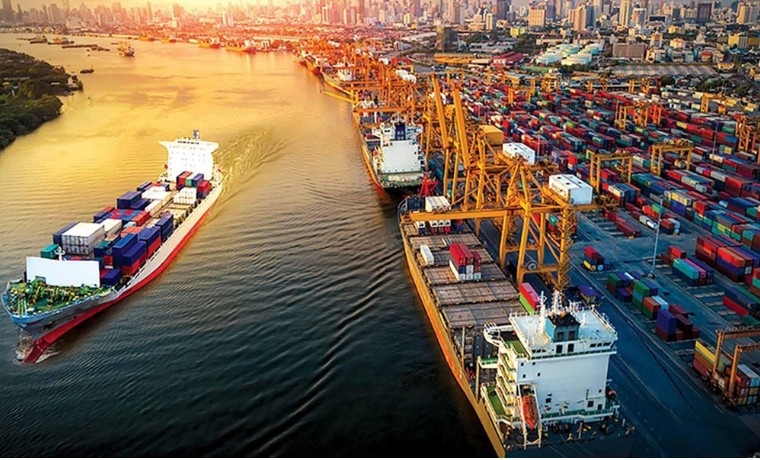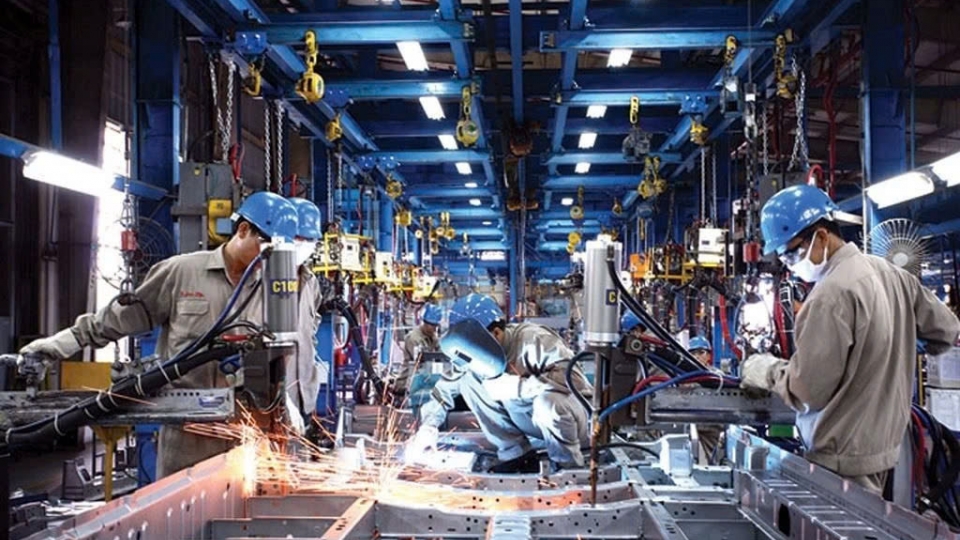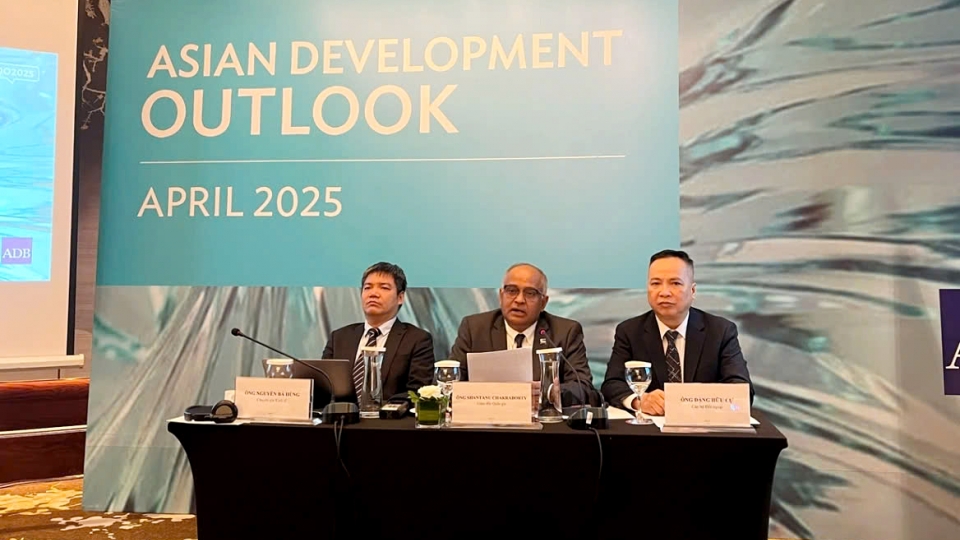Vietnamese economy undergoes strong transformation with sound governance
VOV.VN - The country's bold and effective development path has earned praise from international financial institutions, economists and diplomats amid global economic uncertainties.

From a largely agricultural economy with limited resources and low incomes, the nation has risen to become one of the world’s fastest-growing economies. Over the 40 years since the Doi Moi (Renewal) process, Vietnam’s GDP has increased nearly 100-fold. Per-capita income has risen from under US$100 to nearly US$5,000, lifting the country above the lower-middle-income threshold and toward the upper-middle-income group.
Mariam Sherman, Country Director of the World Bank for Vietnam, Cambodia and Laos, noted that Vietnam’s development rests on a solid foundation; since Doi Moi, the country has achieved notable growth and rapid poverty reduction, with extreme poverty falling from roughly half the population to about 1%, making Vietnam one of the fastest poverty-reduction success stories globally.
In its latest report, the ASEAN+3 Macroeconomic Research Office (AMRO) raised its 2025 growth forecast for Vietnam to 7%, the highest in the region and 1.4 percentage points above the second-ranked country. Beyond strong growth, Vietnam now ranks among the world’s top 20 economies by international trade volume. With a stable investment climate, Vietnam remains one of the top 20 destinations for foreign direct investment (FDI). Foreign firms have hailed Vietnam’s conducive business environment and the government’s proactive, responsive economic management amid global volatility.
Álvaro Pereira, Chief Economist of the Organisation for Economic Co-operation and Development (OECD) in Vietnam, observed that few countries have impressed him as much as Vietnam. He attributed rapid income growth, with per-capita income roughly doubling every decade, to excellent macroeconomic management, sound government policies and strong popular drive.
He added that ongoing institutional reforms and administrative restructuring are already improving economic governance, noting the government’s active measures to streamline the apparatus, cut administrative procedures and revise legal frameworks to remove bottlenecks and facilitate business.
Swiss Ambassador to Vietnam Thomas Gass remarked that implementing wide-ranging reforms in a short period is a major challenge, but Vietnam has managed it through cohesion between the government and the public.
South African Ambassador to Vietnam Vuyiswa Tulelo said that comprehensive national development requires leaders who act and the consensus of the people – a combination she sees in Vietnam. She highlighted Party General Secretary To Lam’s consistent commitment to sound directives and policies, and said that his foreign visits and official receptions have produced practical outcomes that ramp up substantive cooperation rather than mere ceremony.
International integration remains a central strategic direction. To date, Vietnam has concluded 17 free trade agreements with more than 60 economies, significantly widening cooperation space and export markets. Experts pointed to regional and global integration as a key factor sustaining Vietnam’s growth, particularly since its WTO accession in 2007.
Shatanu Chakraborty, Country Director of the Asian Development Bank in Vietnam, emphasized that Vietnam’s strategy to diversify trade partners and export markets while maintaining FDI inflows is well suited to current global challenges. He said trade and FDI continue to be powerful engines of growth and that the government’s current integration-oriented approach is a crucial step forward.
Against a volatile global backdrop, Vietnam faces a historic opportunity to accelerate its transition to a sustainable, innovative and inclusive economy. With macroeconomic stability, determined reform efforts and effective governance from central to local levels, the country is well placed to pursue a stronger leap forward.
The path ahead will include challenges, but with a clear vision for sustainable development and comprehensive integration, the country has solid grounds for confidence in its rising international standing.





